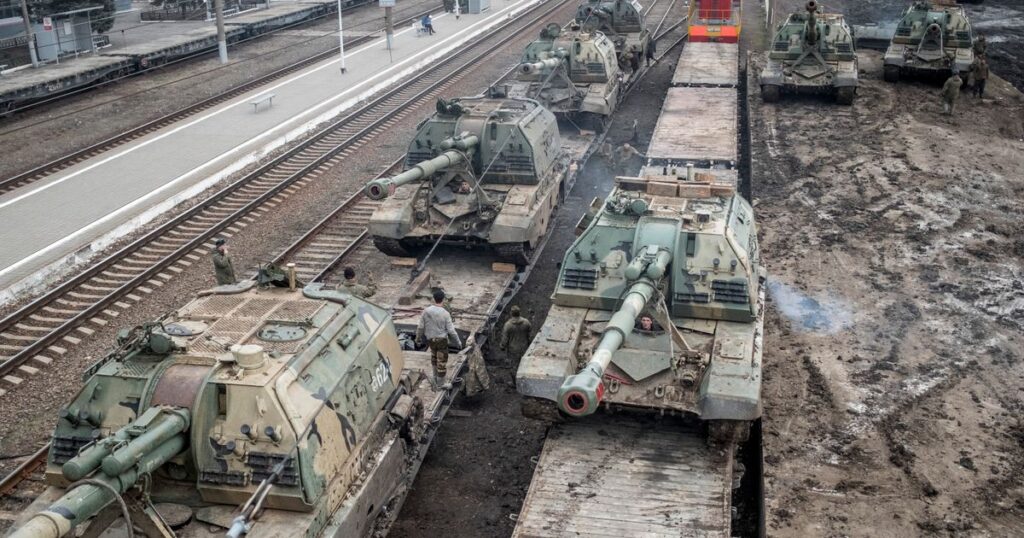For decades, President Vladimir Putin turned to one loyal aide for some of his most delicate assignments.
When Putin became prime minister in 1999, he named the aide, Dmitry N. Kozak, his chief of staff. When Russia won the bidding in 2007 to host the Winter Olympics seven years later, Kozak managed the preparations for the Games. When Putin annexed Crimea in 2014, Kozak oversaw its integration into Russia. As Putin massed troops in 2021, Kozak was telling American diplomats about the evils of the Ukrainian government.
These days, Kozak, 66, is not responsible for much at all, with many of his powers having shifted to another top aide, Sergei V. Kiriyenko, according to three people close to the Kremlin, a Western contact of Kozak and a U.S. official. Kozak has disappointed Putin, they say, because Kozak has made it clear that he believes the invasion of Ukraine was a mistake.
After Putin started the war in Ukraine in February 2022, Kozak said privately that he had advised the Russian president against it, according to the Kremlin insiders and the Western contact, who has had several meetings with Kozak since the war began.
More recently, Kozak told associates this year that he had presented Putin with a proposal to stop the fighting and hold peace negotiations, the Kremlin insiders said. They added that Kozak had indicated that he had also urged Putin to undertake domestic overhauls, including placing Russia’s powerful security agencies under government oversight and building an independent judiciary.
Kozak’s push is unlikely to sway Putin, who is largely surrounded by people who stoke his hard-line demands on Ukraine. But it reflects the frustration coursing through parts of the Moscow elite over Putin’s unwillingness to compromise in the war and over the increasingly unchecked power of the security services.
Kozak is the only senior official close to Putin known to speak openly about his disagreement with the war, according to the people close to the Kremlin, though he has not made those criticisms public.
The people all spoke on the condition of anonymity to speak candidly about Putin’s inner circle. The Kremlin’s spokesperson did not respond to a request for comment.
Kozak used to be a diplomatic enforcer of Putin’s campaign against Ukraine’s Westward tilt. He was born in Ukraine, served in the Soviet special forces and worked with Putin in St. Petersburg City Hall in the 1990s.
John J. Sullivan, the U.S. ambassador to Moscow until 2022, writes in his memoirs that Kozak was known “for his wide smile and often inscrutable ways as a political operator and fixer.”
In December 2021, Karen Donfried, an assistant secretary of state, met with Kozak in a last-ditch effort to avert the war. Sullivan writes that Kozak was “blowing smoke from his gold-filtered cigarettes into the face of the assistant secretary and launching into long soliloquies about the evil and perfidious regime in Kyiv.”
But inside Russia’s halls of power, Kozak was warning of the dire consequences of a full-scale invasion, including of fierce Ukrainian resistance, according to the Kremlin insiders.
Before the war’s start, Kozak spoke out against it in a security council meeting, according to later news reports and to two of the Kremlin insiders. Several days after the invasion began, Putin rejected a peace deal that Kozak said he had negotiated with Ukraine, according to a 2022 Reuters report and two insiders.
Kozak’s stance appears to have precipitated a collapse in his standing with Putin. He has largely ceased appearing in public, while Kiriyenko, a first deputy chief of staff, has embraced the war and traveled frequently to occupied Ukraine.
Many of Kozak’s responsibilities for dealing with parts of the former Soviet Union, like Moldova and the breakaway regions of Georgia, have since shifted to Kiriyenko, the Kremlin insiders and the U.S. official said. (That shift was reported this year by Russian newspaper Vedomosti.) While Kozak was spearheading negotiations over Ukraine until the invasion in February 2022, Kiriyenko has emerged as the Kremlin’s representative to Russian-occupied parts of the country, and a third aide, Vladimir R. Medinsky, is negotiating with Ukraine.
Despite that loss of influence, Kozak has maintained some access to Putin, the Kremlin insiders said. The fact that Putin keeps Kozak around reflects the Russian president’s loyalty to his longtime lieutenants, they noted.
Putin also appears to have used Kozak as a conduit to unofficial Western emissaries who have close ties to Western officials. Kozak’s Western contact said that they had met with him several times since 2022 and that Kozak had made it clear he disagreed with the invasion.
“Give me arguments,” Kozak often said, according to the Western interlocutor. As that person saw it, Kozak was asking for ideas to persuade Putin to change course.

